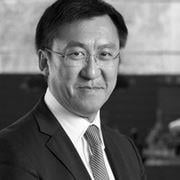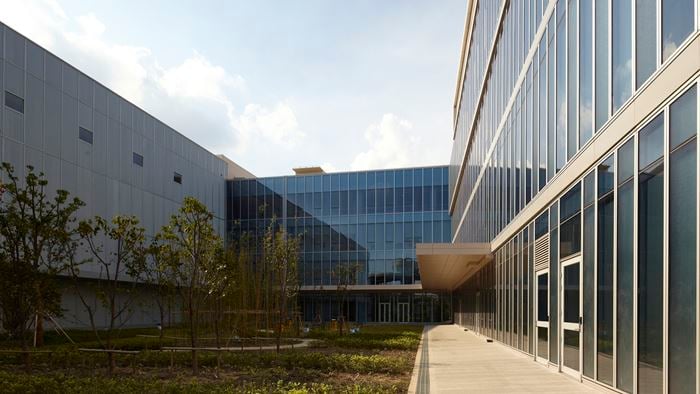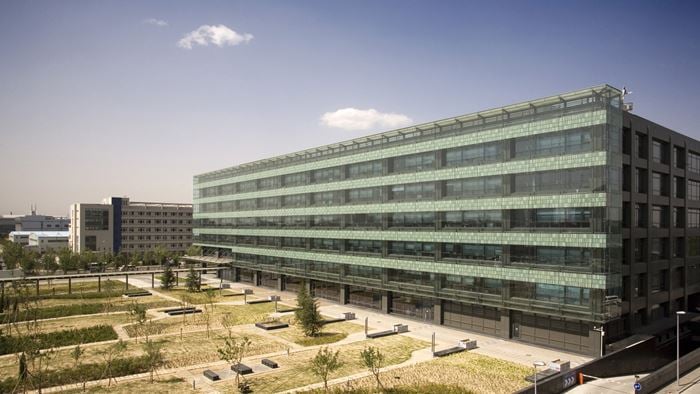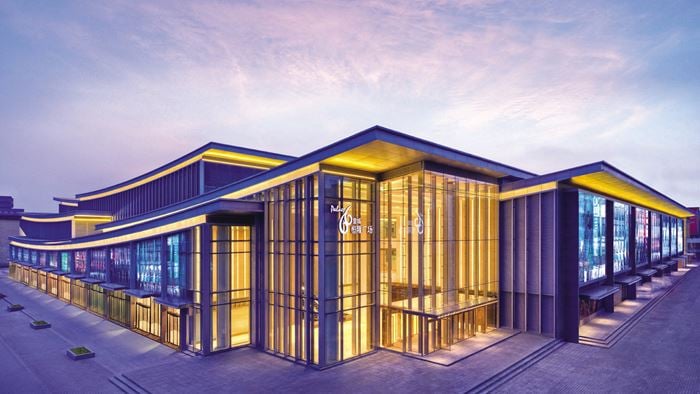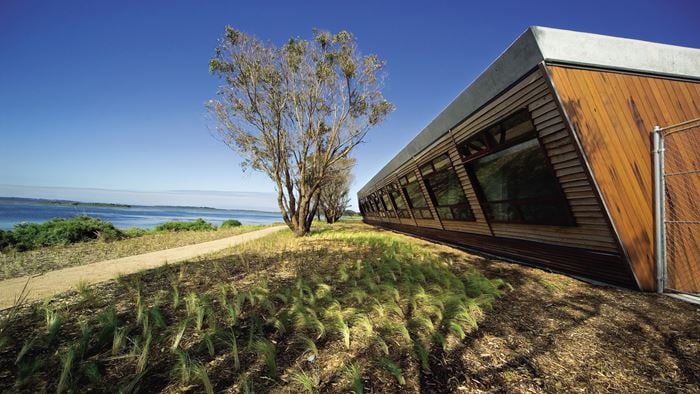Vanke Center is designed as a ‘horizontal skyscraper’, floating' over a landscaped garden in Shenzhen, China.
As sustainability consultant, Arup focused on adaptation, low resource consumption and social benefits to generate cost-effective sustainable design solutions.
Arup engineers made full use of the extensive roof space created by the horizontal design. Photovoltaic (PV) panels were installed and roofs with native plants reduce heat island effect and stormwater runoff.
The mixed-use development comprises apartments, offices and a hotel, with a conference centre, spa and parking facilities below ground. The building serves as the new headquarters for Vanke, one of China’s largest property developers, and epitomises the firm’s vision to promote sustainable and socially-responsive urbanisation.
Project Summary
46.8% less energy consumed
150m³of water saved every day by incorporating the grey water treatment plant into the ecological wetland
Energy efficiency
The centre is a striking example of energy efficiency. It employs passive and active energy strategies including optimised building envelope, controllable shading devices, daylighting, natural ventilation, underfloor air conditioning, heat recovery, ice storage, demand control ventilation and task lighting.
PV panels generate around 26.8% of the building’s annual energy. Overall, the complex saves up to 46.8% on energy and up to 60.5% on operating cost.
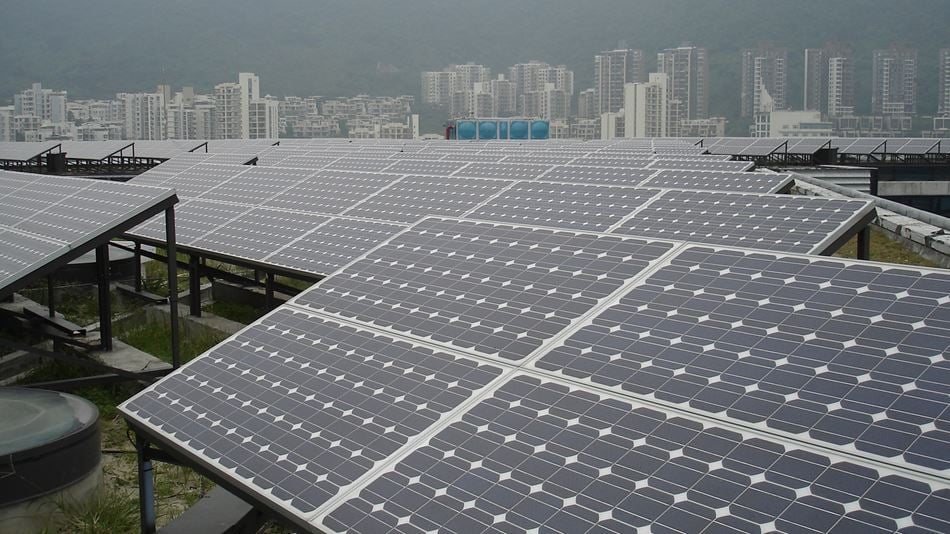
The complex saves up to 60.5% on operating cost, and achieves a 47% reduction in energy use, 51% in water savings, 64% in green coverage and 97% of the interior space is naturally lit
Water Management
Arup developed and implemented water harvesting and recycling systems to manage water consumption. A rainwater harvesting system with a capacity of 1,200m³ integrated with the landscape. A grey water treatment plant incorporated into ecological wetland can save up to 150m³ of water every day. The design uses waterless urinal and low-flow water fixtures, reducing potable water use by 51%.
Social well-being
The project also emphasises the social benefits of regional regeneration, community life and promoting sustainability. Easily accessible by the public, the centre serves as an urban oasis that encourages community interaction and public involvement.
The scheme also boasts a multi-functional community playground and sustainable technology showroom – providing leisure facilities and a platform to educate on sustainable living.
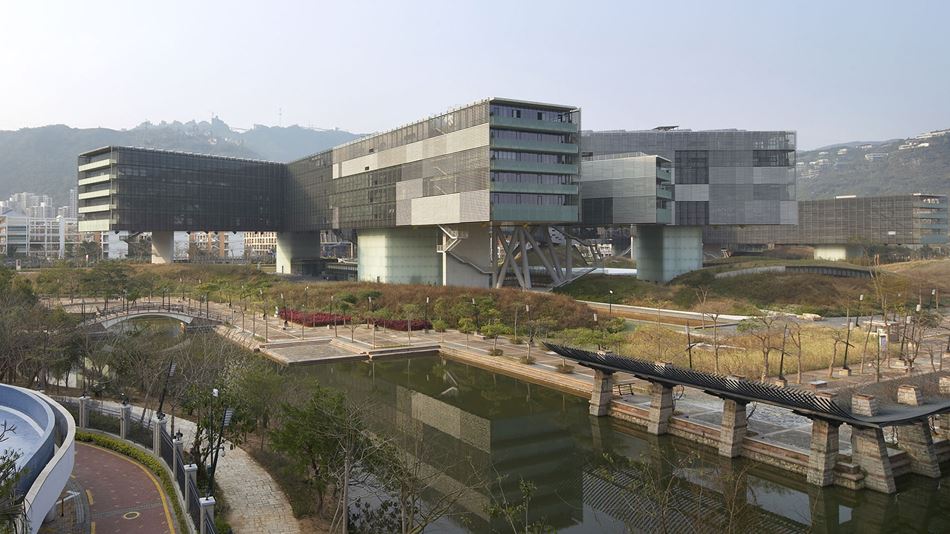
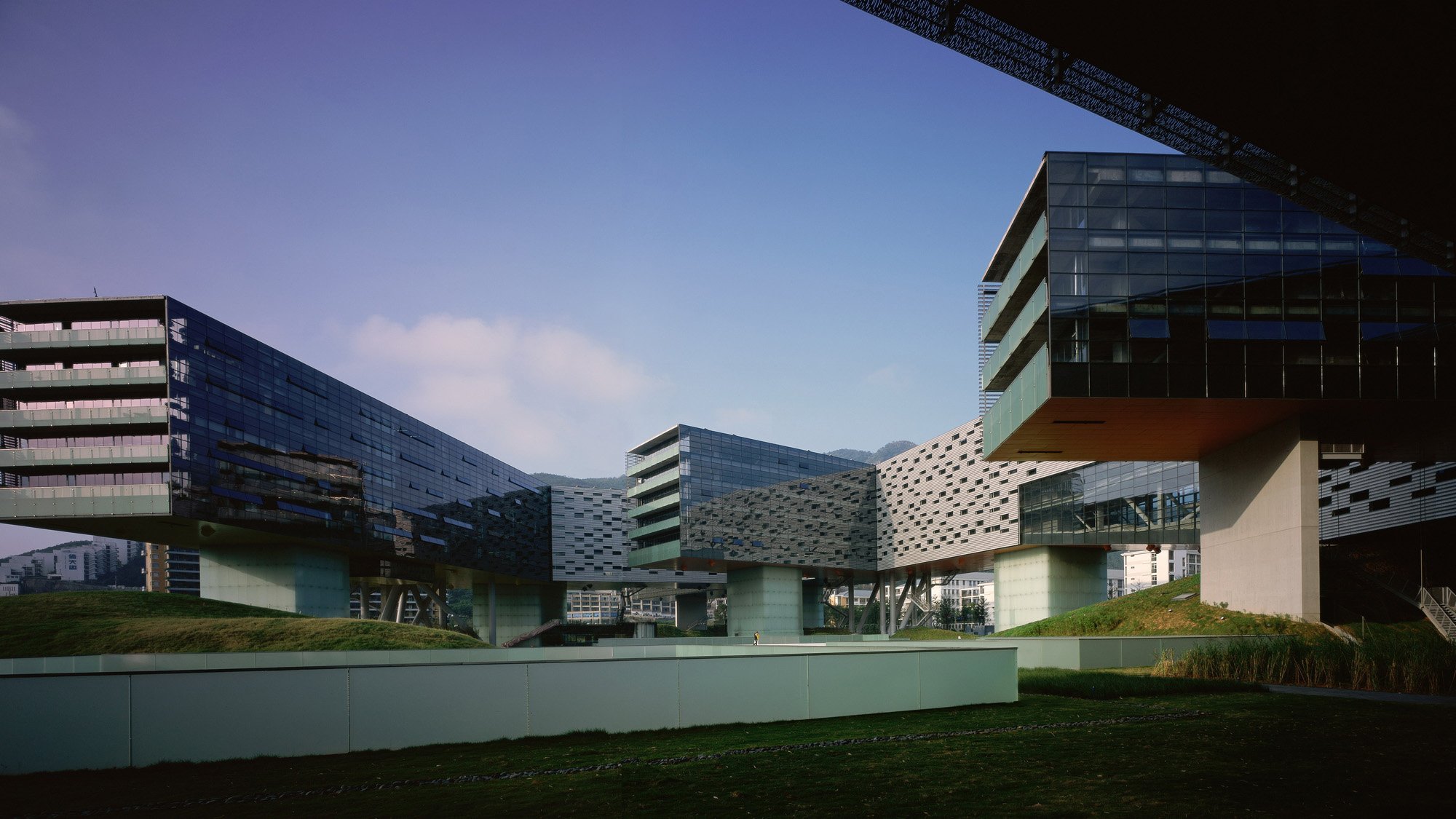 ;
;
